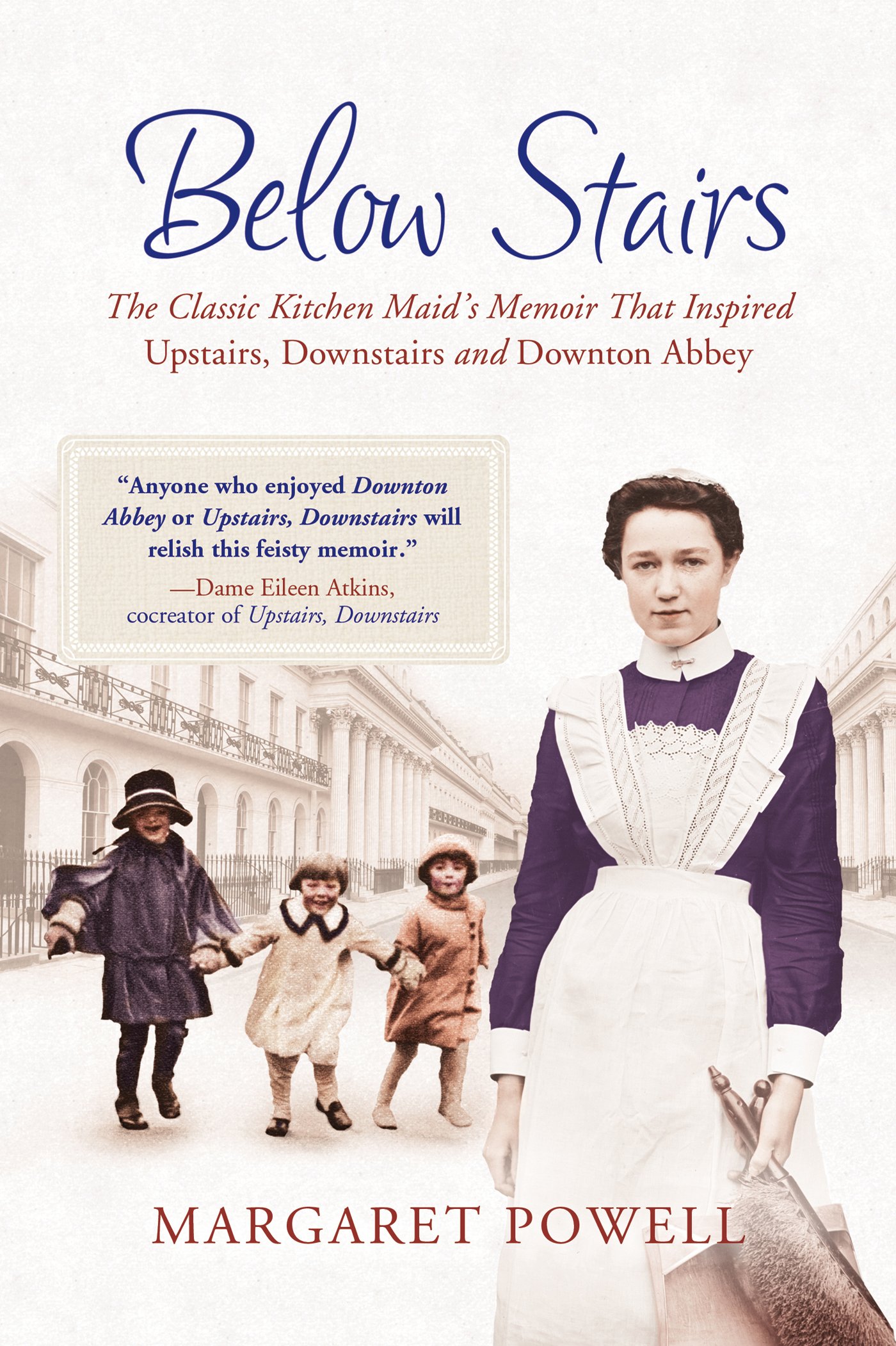
Shoutout to all the librarians of the world, whose expertly-crafted displays entice even the most introverted of bookworms, who sure as heck aren't brave enough to ask you for a direct recommendation. Such a makeup was how I got my hands on this memoir, this past February!
Margaret Powell’s iconic memoir Below Stairs provides a fascinating first-hand account of the back staircases and cramped servants’ quarters of the English elite, in the space between the two World Wars. Her vivid portraits of past employers, and powerful hindsight commentary applied to her unique experiences, have inspired the likes of quintessential British programming, such as Upstairs, Downstairs and Downton Abbey.
This fiesty writer rose not just through the ranks of household staff in her places of employment, but also from her class position, in order to become a vibrant, humorous memoirist. I especially loved her determined spirit and incensed perspectives on both past and contemporary (at the time) expectations of working women. She focuses on both the disparity of social classes and the power complexities of being a young woman in a working environment with a seasoned eye that still comes across as quite modern for her time.
Her origins
and evolution provide an intriguing background to the changing modernist
dynamics of that time period: having been raised in relative poverty, to
waiting on aristocracy, to interacting with artists and the elite, and then
going back to poverty and charity reliance once she left the workforce again
after she got married, still comes across as a saga. The deliberate points she
makes to illuminate various facets of these struggles raises important
questions about the relationship and interactions between social classes, even
nowadays!
In one memorable
section of the memoirs, she even calls herself a feminist by name. Raised in
the time of the suffragettes and having written the book itself in the midst of
the tumultuous sixties, this struck me as particularly valid. If there’s anyone
who warrants that title, it’s those of her stripes, quietly (and not-so-quietly)
struggling for those rights at a time where such behavior was unthinkable.
Being that we can barely convince today’s Hollywood darlings and pop stars to
own up to those kinds of titles that women like Powell worked so hard to
bestow, the ownership of the phrase seemed particularly poignant.
One
particularly moving emotional moment – which occurred fairly early on in these
memoirs – was that of Agnes, the parlourmaid, at Margaret’s first place of
work. While questions about abortion are still carried on today, in even the
highest courts of our country and others, the fact that this has been such a
documented turmoil on behalf of womenkind for such a long time also lends the
memoir a significant amount of feminist credence. When women were widely without
protection or options, and men met little to no consequence, this kind of issue
could ruin the lives of those with the least security, and hearing about Agnes’
silent suffering and subsequent dismissal were hard to read about, especially
in 2017.
Same with the
descriptions of Powell’s experiences with poverty, and the expected
subservience of the poorer classes on multiple levels – such as demonstrating
semi-fealty to community “charity” groups - despite the fact that either she or
her husband was regularly working. Deliberate social constructs that kept both her
and her sons from pursuing higher education were especially annoying to read
about, because anyone could see that this girl was smart, and observant. Empathy
should always remain at the root of charity and community, and these examples
were perfect illustrations as to why: demonstrated suffering shouldn't serve as a requirement to being poor.
(As Charlie Chaplin said, "Judge a man not by how he treats his equals but by how he treats his inferiors." No one escapes this book without Powell bestowing some well-deserved karmic payback.)
Due to the unique nature of these perspectives - as well as the incredibly humorous, interesting anecdotes peppered throughout the work - I would love to read more about the interactions between servants and their employers during this time period. They really did know everything that was going on in a household, even things that their employers were working hard to keep hidden!
Final Verdict: Below Stairs is invaluable reading for not just fans of the period piece or British writing, but those looking for uncommon perspectives on feminism and social equality.
Are you a fan of shows like Downton Abbey? What's your favorite period memoir? Let me know, in the comments below!






